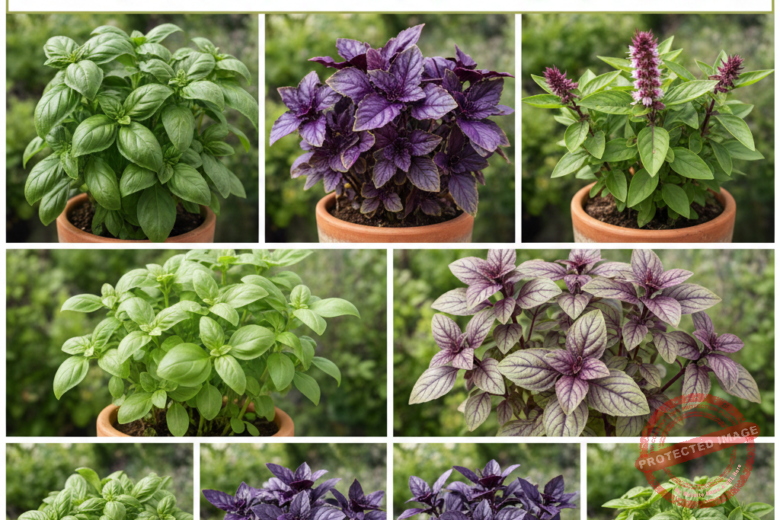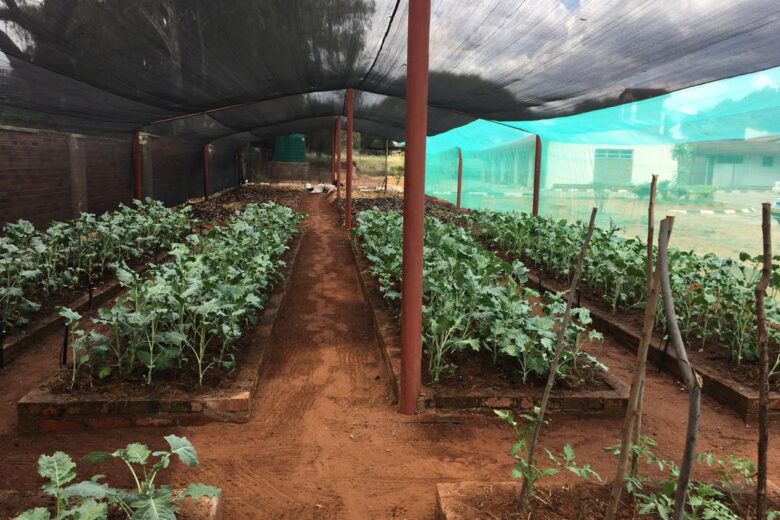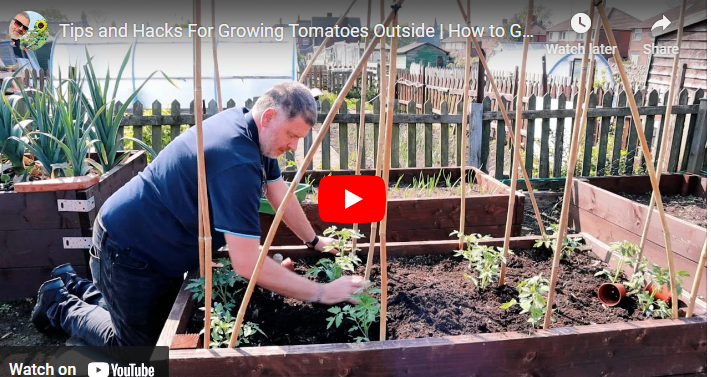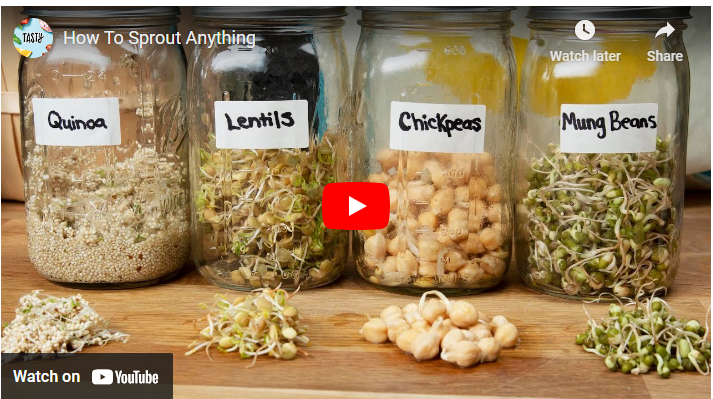Crops that are suitable for sprinkler irrigation systems include a variety of fruits, vegetables, and grains. These crops have specific water requirements and benefit from the controlled and efficient distribution of water provided by sprinkler systems.
Some of the most common crops grown using sprinkler irrigation include alfalfa, cotton, corn, grapes, potatoes, soybeans, sugar beets, and wheat.
Sprinkler irrigation systems can also be used to grow nursery crops, landscape plants, and other specialty crops. With the ability to deliver water at a controlled rate, crops grown using sprinkler irrigation are often of high quality and yields are increased.
We have compiled vital information on the sprinkler irrigation system in this article including crops that are suitable for this irrigation system.
Crops Suitable For Sprinkler Irrigation System
Sprinkler irrigation systems are an effective and efficient method of watering crops, landscapes, and other vegetation. This type of irrigation system uses a network of pipes and sprinklers to distribute water evenly over a large area.
Read Also: List Of Crops Suitable for Silage Making [Farmers Guide]
Sprinkler irrigation is often used for crops that require frequent and consistent watering, such as vegetables, fruits, and grains. It can also be used for landscaping, nurseries, and other specialty crops.
sprinkler irrigation systems can be automated, saving you time and reducing the need for manual labor. The system provides the right amount of water at the right time to maximize crop yields and quality.
Crops Suitable For Sprinkler Irrigation System
Sprinkler irrigation systems are suitable for a wide range of crops including vegetables, grains, fruits, flowers, and other specialty crops.
Read Also: List Of Crops Suitable For Silt Soil [Farmers Guide]
Vegetables such as Potatoes, Corn, Soybeans, Sugar beets, Lettuce, Carrots, and tomatoes benefit from the consistent and controlled water distribution provided by sprinkler irrigation.
Grains such as wheat, barely, oats, and alfalfa also thrive under sprinkler irrigation.
Fruits such as Grapes, Citrus fruits (oranges, lemons, limes, etc.), Stone fruits (peaches, plums, cherries, etc.), Berries (strawberries, raspberries, blueberries, etc.) are also well-suited for sprinkler irrigation.
These crops require consistent watering to maintain high yields and quality, and the sprinkler system allows for precise water control.
Read Also: List Of Crops Suitable For Sandy Soil [Farmers Guide]
Flowers and ornamental plants also benefit from sprinkler irrigation especially the likes of Roses, Tulips, Lilies, Sunflowers, and Chrysanthemums.
In addition to the above crops, sprinkler irrigation systems can also be used for a wide range of specialty crops. This includes crops such as cotton, which requires large amounts of water, and can benefit from the controlled distribution of water provided by the sprinkler system.
Also, nurseries and landscape plants require consistent watering to maintain their growth and health, and sprinkler systems can provide the required amount of water without the risk of overwatering or underwatering.
Read Also: Crops Suitable For Drip Irrigation [Farmers Guide]
Factors to Consider When Deciding Which Crops to Irrigate with a Sprinkler System
When deciding which crops are suitable for sprinkler irrigation systems, there are several factors to consider.
- The first is the water requirements of the crop. Some crops require large amounts of water, while others are more drought-tolerant and do not require as much water. It’s important to carefully consider the water needs of each crop when deciding whether to use a sprinkler irrigation system.
- Another important factor to consider is the climate and weather conditions of the area where the crops will be grown. Some crops are well-suited to areas with hot, dry climates, while others thrive in cooler, more temperate climates.
- It’s important to select crops that are well-suited to the local climate to maximize yields and ensure the success of the crop.
- Soil type and fertility is another important factor to consider. Some crops require specific soil types and nutrient levels, and it’s important to ensure that the soil in the area where the crops will be grown is suitable for the specific crop being grown.
- Consider the water source when deciding which crops are suitable for sprinkler irrigation systems. Some crops require high-quality water, while others are more tolerant of lower-quality water sources. It’s important to ensure that the water source is suitable for the specific crop being grown to ensure the success of the crop.
Benefits of Sprinkler Irrigation for Different Crops
There are several benefits of using sprinkler irrigation systems for different crops.
- For vegetables, fruits, and grains, sprinkler irrigation provides consistent and controlled water distribution, which helps to increase yields and improve crop quality.
- This type of irrigation system also reduces the risk of overwatering and underwatering, which can be a common problem with other types of irrigation systems.
- For flowers and ornamental plants, sprinkler irrigation systems provide consistent watering, which helps to maintain growth and health.
- The controlled water distribution provided by the system also helps to prevent overwatering, which can be a problem with other types of irrigation systems.
- Sprinkler irrigation systems also help to save time and money. With the ability to automate the system, you can reduce the need for manual labor and focus on other tasks.
- Sprinkler irrigation systems can reduce water waste, as the controlled water distribution provided by the system helps to ensure that water is used efficiently.
How to Setup and Install Sprinkler Irrigation System
Installing a sprinkler irrigation system can seem intimidating, but with proper planning and preparation, it can be a relatively straightforward process.
Here are the steps to help you set up and install your sprinkler irrigation system:
Read Also: List Of Crops Suitable For Black Soil [Farmers Guide]
Plan And Design Your System
Determine the area you want to cover, the type of crops or vegetation you want to water, and the water pressure and flow rate available to you. This information will help you determine the size and type of system you need, as well as the number of sprinklers required.
Gather Materials
You will need a variety of materials, including pipes, fittings, sprinklers, valves, backflow preventers, and a control system. It is important to choose high-quality materials that are appropriate for your specific needs.
Excavate And Lay Out The Pipes
Dig trenches for the pipes, making sure they are deep enough to avoid damage from frost or other sources. Place the pipes in the trenches and connect them using fittings.
Read Also: List Of Crops Suitable For Alluvial Soil [Farmers Guide]
Install The Control System
The control system is responsible for controlling the timing and duration of watering. You can choose from a variety of options, including manual, automatic, or computer-controlled systems.
Install The Sprinklers
Mount the sprinklers in the desired locations and connect them to the pipes. Make sure the sprinklers are positioned correctly to provide adequate coverage and avoid overlap.
Connect The Water Source
Connect the pipes to your water source, making sure to install backflow preventers to protect your water supply from contamination.
Read Also: List OF Crops Suitable For Alkaline Soils [Farmers Guide]
Test The System
Once the installation is complete, test the system to make sure it is functioning correctly. Check the water pressure, coverage, and timing, and make any necessary adjustments.
Maintain The System
Regular maintenance is crucial to ensure the longevity and efficiency of your sprinkler irrigation system. This may include cleaning the sprinklers, checking for leaks, and adjusting the control system as needed.
Common Mistakes to Avoid When Setting Up a Sprinkler Irrigation System
Setting up a sprinkler irrigation system requires careful planning and attention to detail to ensure that it operates effectively and efficiently.
However, there are many common mistakes that can be made during the setup process, which can lead to problems with the system’s performance.
Read Also: List Of Crops Suitable For Acidic Soil [Farmers Guide]
Here are some of the most common mistakes to avoid when setting up a sprinkler irrigation system:
Improper Sizing
One of the most common mistakes is sizing the system incorrectly. If the system is too small, it won’t be able to provide enough water to the crops, and if it’s too large, it will be wasteful and inefficient.
It’s important to carefully calculate the size of the system needed based on the water requirements of the crops and the size of the area to be irrigated.
Incorrect Placement Of Sprinklers
Improper placement of sprinklers can lead to uneven water distribution and result in some areas being over or under-watered.
It’s important to carefully plan the placement of the sprinklers to ensure that they cover the entire area evenly.
Read Also: List Of Crops Sensitive To Salinity [Farmers Guide]
Poor Water Pressure
If the water pressure is too low, the system won’t be able to provide adequate water to the crops.
On the other hand, if the water pressure is too high, it can cause damage to the system and reduce its efficiency. It’s important to measure the water pressure and adjust it as needed to ensure that it’s within the recommended range.
Neglecting Maintenance
Neglecting routine maintenance can lead to problems with the system’s performance over time. Regular cleaning, testing, and adjusting of the system is necessary to keep it operating effectively and efficiently.
Neglecting Weather Patterns
The weather patterns in the area will affect the water requirements of the crops. It’s important to monitor the weather conditions and adjust the irrigation schedule accordingly to ensure that the crops receive the right amount of water at the right time.
Read Also: 100 Crops Resistant To Drought
Tips for Managing and Maintaining a Sprinkler Irrigation System
Here are some vital tips for managing and maintaining a sprinkler irrigation system.
Regular Inspections
It is important to regularly inspect your sprinkler irrigation system to ensure it is functioning properly. Look for broken or leaking sprinkler heads, clogged nozzles, and other potential problems.
Proper Water Pressure
Make sure that your sprinkler system is receiving the proper water pressure to ensure the best performance. Water pressure that is too low or too high can affect the distribution of water and reduce the efficiency of the system.
Correct Water Distribution
Check the water distribution pattern of your sprinkler heads to ensure that water is being applied evenly over the crops. If some areas are receiving more water than others, this could result in uneven growth and reduced yields.
Adjustments
Make adjustments to your sprinkler system as needed to ensure that the correct amount of water is being applied to your crops. This may involve adjusting the water pressure, the rotation of the sprinkler heads, or the height of the sprinkler system.
Regular maintenance
Regular maintenance of your sprinkler system is essential to ensure its longevity and performance. This may include cleaning the sprinkler heads, replacing worn or damaged parts, and flushing the system to remove any built-up debris.
Advantages of Sprinkler Irrigation System
1. Water Efficiency
Sprinkler irrigation systems are designed to distribute water evenly and efficiently, reducing water waste and improving water utilization.
2. Increased Yields
Sprinkler irrigation allows you to provide the right amount of water at the right time, which can increase crop yields and improve the quality of the crops.
3. Time-Saving
Automated sprinkler irrigation systems can save you time by reducing the need for manual labor, such as watering crops by hand.
4. Cost-Effective
Sprinkler irrigation systems are often more cost-effective than traditional irrigation methods, such as flooding or furrow irrigation, because they reduce water waste and improve water utilization.
5. Versatile
Sprinkler irrigation systems can be used for a wide range of crops and vegetation, including vegetables, fruits, grains, flowers, and other specialty crops.
Disadvantages of Sprinkler Irrigation System
1. High Initial Cost
Installing a sprinkler irrigation system can be expensive, and the cost may be a barrier for you, especially those with smaller operations.
2. Maintenance
Sprinkler irrigation systems require regular maintenance, including checking for leaks and replacing damaged parts, which can be time-consuming and costly.
3. Water Quality
If water quality is poor, it can clog the sprinkler nozzles, reducing system efficiency and requiring frequent maintenance.
4. Energy Usage
Sprinkler irrigation systems require energy to operate, which can add to the cost of the system and contribute to environmental degradation.
5. Weather Dependent
Sprinkler irrigation systems may not be effective during periods of heavy rain or drought, and may need to be adjusted or shut off during these conditions.
How to Troubleshoot Problems with Sprinkler Irrigation Systems
1. Clogged Nozzles
If the sprinkler nozzles become clogged, the system may not be able to distribute water evenly. Clean the nozzles regularly to ensure proper water distribution.
2. Leaks
If you notice that the system is losing water, check for leaks in the pipes or sprinkler heads. Repair any leaks as soon as possible to prevent water waste.
3. Poor Water Pressure
If water pressure is low, the sprinkler system may not be able to distribute water evenly. Check the pump and water source to ensure that water pressure is sufficient.
4. Irregular Water Distribution
If water is not being distributed evenly, check the layout of the system and make adjustments as necessary. Ensure that sprinkler heads are positioned correctly and that nozzles are not clogged.
5. Electrical Problems
If the system is not operating properly, check the electrical components, including the pump, timer, and wiring, to ensure that everything is functioning correctly.
Factors to Choosing the Right Sprinkler System for Your Crops
When choosing the right sprinkler system for your crops, there are several factors that you should consider to ensure that you get the best results. Some of the key factors include:
1. Crop Type
Different crops have different water requirements and it’s important to choose a sprinkler system that can meet the specific needs of your crops. For example, fruits and vegetables typically require more consistent watering than grains, and the size and type of sprinkler head used may vary based on the specific crop requirements.
2. Irrigation Area
The size of your irrigation area is an important factor to consider when choosing a sprinkler system. If you have a large area that needs to be irrigated, you may need to choose a system with multiple sprinkler heads and large water capacity.
3. Soil Type
The type of soil you have will also impact the type of sprinkler system that you choose. If you have heavy clay soil, for example, you may need to choose a system with low-volume sprinkler heads to reduce the risk of water runoff.
4. Water Availability
The amount of water available for irrigation is also a key factor to consider. If you have limited water resources, you may need to choose a more efficient system that uses water more effectively.
5. Cost
Finally, cost is an important factor to consider when choosing a sprinkler system. You’ll want to choose a system that fits within your budget, but also provides the features and capabilities that you need for your specific crops and irrigation requirements.
Challenges of Sprinkler Irrigation System
While sprinkler irrigation systems are an effective and efficient way to irrigate crops, there are also several challenges associated with using this type of system. Some of the key challenges include:
1. Maintenance
Sprinkler systems require regular maintenance to ensure that they continue to function properly. This may include cleaning or replacing sprinkler heads, repairing leaks, and ensuring that the system is properly configured.
2. Water Waste
If not properly managed, sprinkler systems can lead to significant water waste. Overwatering or improper distribution of water can result in runoff and evaporation, reducing the efficiency of the system.
3. Weather Conditions
Weather conditions can impact the effectiveness of sprinkler systems. For example, strong winds can cause water to be blown away from the crops, reducing the effectiveness of the system.
4. Clogging
Over time, the sprinkler heads may become clogged with debris, reducing the water flow and effectiveness of the system.
5. Pests and Diseases
Sprinkler systems can also provide a breeding ground for pests and diseases, particularly if water is left standing for long periods of time.
Types Of Sprinkler Irrigation System
Sprinkler irrigation systems are an effective and efficient method of watering crops, landscapes, and other vegetation.
There are several types of sprinkler irrigation systems, each with its own unique features and benefits.
1. Impact Sprinkler System
Impact sprinkler systems are the most common type of sprinkler irrigation system. They consist of a series of sprinklers that are mounted on risers and connected to a central water source.
The sprinklers use an impact mechanism to distribute water in a circular pattern. This type of system is suitable for large fields and is ideal for crops that require consistent watering.
2. Rotary Sprinkler System
Rotary sprinkler systems are similar to impact sprinkler systems, but the sprinklers use a rotary motion to distribute water.
This type of system is often used for crops that require high volumes of water, such as corn and soybeans. Rotary sprinkler systems are also well suited for uneven terrain and can cover a large area in a single pass.
3. Drip Irrigation System
Drip irrigation systems are a more targeted type of sprinkler irrigation system. They use a series of small emitters to deliver water directly to the roots of plants. This type of system is ideal for crops that are sensitive to waterlogging and are well suited for crops that require precise water management, such as strawberries and tomatoes.
4. Center Pivot Sprinkler System
Center pivot sprinkler systems are large, stationary systems that rotate around a central pivot point. They are well suited for large fields and can cover a large area in a single pass.
This type of system is ideal for crops that require consistent watering, such as corn and soybeans.
5. Micro-Sprinkler System
Micro-sprinkler systems are similar to drip irrigation systems but use small sprinklers instead of emitters. They are well suited for small fields and gardens and can be used for a wide range of crops, including vegetables, fruits, and flowers.
Irrigation Sprinkler System
Irrigation sprinkler systems are a type of irrigation method that uses a network of pipes and sprinklers to distribute water evenly over a large area.
This system is often used for crops that require frequent and consistent watering, such as vegetables, fruits, and grains.
It provides you with a cost-effective and efficient way to meet the water needs of your crops and maintain high yields and quality.
Interestingly, many irrigation sprinkler systems can be automated, saving you time and reducing the need for manual labor.
Components of Sprinkler Irrigation System PDF
A typical sprinkler irrigation system consists of several key components, including:
Water source
A reliable source of water, such as a well, lake, or stream, is required to operate a sprinkler irrigation system.
Pumps
A pump is needed to move water from the water source to the sprinkler system.
Control valves
These valves regulate the flow of water to the sprinkler system.
Filters
Filters are used to remove debris from the water and prevent clogging in the pipes and sprinklers.
Main line
The main line is the pipeline that carries water from the pump to the control valves.
Sub-main lines
These lines carry water from the control valves to the sprinklers.
Sprinklers
Sprinklers distribute water to the crops and can be adjusted to provide the right amount of water to each crop.
Pressure gauges
Pressure gauges are used to monitor the pressure in the system and ensure that it remains within the recommended range.
Sprinkler Irrigation Importance
Sprinkler irrigation is important for several reasons. Firstly, it provides a controlled and efficient method of watering crops, which can increase yields and improve crop quality.
Secondly, it saves time and reduces manual labor, as the system can be automated to water crops at regular intervals.
Thirdly, it reduces water waste by precisely applying water where it is needed, and it can help to conserve water resources by reducing evaporation and runoff.
Agriculture Sprinkler Irrigation
Agriculture is one of the primary users of sprinkler irrigation systems. The systems are used to water a wide range of crops, including vegetables, grains, fruits, and specialty crops.
In agriculture, sprinkler irrigation is often used to meet the specific water requirements of each crop, and to provide consistent and controlled watering to increase yields and improve crop quality.
Irrigation Sprinkler System
An irrigation sprinkler system is a type of irrigation system that uses sprinklers to distribute water to crops and vegetation.
The system typically consists of a network of pipes and sprinklers, which are controlled by valves and connected to a water source.
The sprinklers are designed to deliver water at a controlled rate and can be adjusted to meet the specific needs of each crop.
Sprinkler Irrigation Uses
Sprinkler irrigation systems can be used in a wide range of applications, including agriculture, landscaping, nurseries, and other specialty crops.
In agriculture, the systems are used to water a variety of crops, including vegetables, grains, fruits, and other specialty crops. In landscaping, the systems are used to water lawns, gardens, and other vegetation, and can be used to water trees, shrubs, and other plants in nurseries.
Sprinkler irrigation systems can also be used to water sport fields, parks, and other large areas, making them a versatile and flexible option for many different applications.
Conclusion
Crops suitable for sprinkler irrigation system are those that require a consistent supply of moisture, such as alfalfa, corn, soybeans, cotton, and sugar beets. These crops have a high-water requirement and their growth can be greatly impacted by drought conditions. Sprinkler irrigation allows for a precise and uniform application of water to the crops, leading to increased yields and improved crop quality.



